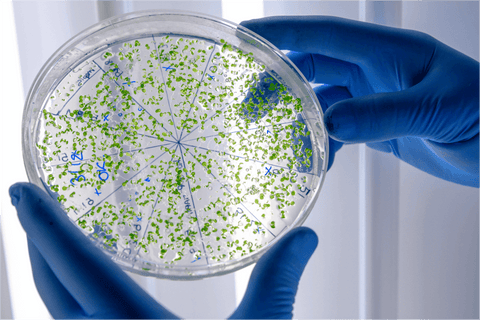What is the Mayo Clinic Fisetin Protocol?

Key Takeaways
-
Fisetin May Help Remove Aging Cells: The Mayo Clinic Fisetin Protocol studies how Fisetin clears senescent cells, reducing inflammation and supporting healthy aging.
-
Clinical Trials Show Promising Benefits: Research suggests Fisetin may improve brain health, support longevity, and lower disease risk, but more human studies are needed.
-
Fisetin Is Being Tested for Safe Use: The Mayo Clinic is researching the best dosage and safety of Fisetin for long-term health benefits.
Understanding the Mayo Clinic Fisetin Protocol
The Mayo Clinic is investigating fisetin’s role in targeting senescent cells, which contribute to aging and disease. This section provides an overview of the compound and why it’s a focus of research.
What is Fisetin?
Fisetin is a natural flavonoid found in fruits like strawberries and apples. It has strong antioxidant and anti-inflammatory properties, which may help remove damaged senescent cells from the body.
Why is the Mayo Clinic Studying Fisetin?
Senescent cells accumulate with age and contribute to inflammation and disease. The Mayo Clinic is researching fisetin’s ability to clear these cells and improve longevity, brain function, and metabolic health.
Key Objectives of the Protocol
-
Study fisetin’s effects on aging and inflammation
-
Determine optimal dosages for human use
-
Measure safety and side effects of fisetin supplementation
Mayo Clinic Phase II Study on Fisetin
This phase of the study examines fisetin’s impact on aging, focusing on its effectiveness and safety in human participants.
Overview of the Clinical Trial
The Mayo Clinic is conducting Phase II clinical trials to assess fisetin’s impact on health and longevity in older adults.
Study Design and Methodology
-
Participants: Adults aged 70+ at risk for age-related diseases
-
Dosage: High-dose fisetin taken periodically
-
Duration: Several months with follow-up assessments
Expected Outcomes and Significance
-
Reduction in senescent cells
-
Improvements in inflammation markers
-
Enhanced cognitive and physical health
Clinical Evidence: Human Trials and Research Findings
Scientific studies are crucial in determining fisetin’s effectiveness. This section reviews completed and ongoing clinical trials.
Current Evidence from Human Studies
Early human trials suggest fisetin may improve immune function and reduce chronic inflammation.
Ongoing and Upcoming Trials on Fisetin
New studies are being done to see if Fisetin is safe and works well for older adults over time.
Outcome Measures in Fisetin and Senolytics Research
-
Biomarker analysis for senescent cell clearance
-
Cognitive and physical performance testing
-
Inflammation and oxidative stress levels
Fisetin Benefits According to the Mayo Clinic
Fisetin has shown promising effects on health, particularly in slowing aging and reducing inflammation.
Cellular Senescence and Aging
Fisetin helps remove senescent cells, which slow down cell renewal and contribute to aging.
Anti-Inflammatory and Antioxidant Effects
Research suggests fisetin lowers inflammation and oxidative stress, protecting against age-related diseases.
Potential for Neuroprotection and Cognitive Health
Fisetin may support brain function by reducing inflammation and oxidative damage in neurons.
Order your Fisetin Supplement today and start your healthy aging journey.
Fisetin Before and After: What Do Studies Show?
Studies show that Fisetin may help slow aging and support metabolism by reducing harmful cells in the body.
Effects on Cellular Aging and Longevity
Studies show that taking fisetin regularly may help you live longer by removing damaged aging cells.
Improvements in Inflammation and Metabolic Health
Fisetin has been shown to improve insulin sensitivity and support cardiovascular health.
Potential Benefits for Age-Related Diseases
Early findings suggest fisetin may help with arthritis, Alzheimer’s, and metabolic disorders.
How Fisetin Works: Mechanism of Action and Pharmacokinetics
Understanding how fisetin functions in the body helps explain its potential longevity benefits.
How Fisetin Targets Senescent Cells
Fisetin acts as a senolytic, selectively clearing aging cells that cause chronic inflammation.
Absorption, Bioavailability, and Metabolism
Fisetin has low bioavailability, but research is exploring ways to enhance absorption.
Duration of Action in the Body
Fisetin's effects can be different for each person, but a single high dose may last for a few days.
Safety, Toxicology, and Potential Side Effects
Fisetin looks promising, but it's important to know if it's safe before using it widely.
Is Fisetin Safe for Long-Term Use?
Current studies suggest fisetin is safe at recommended doses, but more research is needed.
Dosage Considerations and Precautions
-
Most studies use high doses (20mg/kg) from time to time.
-
Individuals with health conditions should consult a specialist before taking fisetin
Common and Rare Side Effects
-
Common: Mild digestive discomfort, headaches
-
Rare: Allergic reactions, unknown long-term effects
The Future of Fisetin Research and Senolytics
Scientists continue to explore the role of fisetin and other senolytic compounds in aging research.
The Potential for Anti-Aging Therapies
Fisetin is one of many senolytics being explored for longevity and age-related disease treatment.
Integrating Fisetin with Other Senolytic Compounds
Some experts suggest combining fisetin with quercetin, resveratrol, or NMN for enhanced effects.
Challenges and Future Directions in Research
-
More long-term clinical trials are needed
-
Bioavailability improvements will enhance effectiveness
-
Research into personalized dosages is ongoing
FAQs
What is the Mayo Fisetin Protocol?
The Mayo Clinic Fisetin Protocol is a study on how Fisetin, a natural compound, helps remove aging cells. It may reduce inflammation, slow aging, and improve overall health.
Who should avoid Fisetin?
People with blood disorders, those on blood thinners, or with flavonoid allergies should avoid Fisetin. Pregnant and breastfeeding women should check with a doctor before using it.
What does Fisetin do to the brain?
Fisetin helps protect brain cells, lowers inflammation, and improves memory and learning. It may also support better brain function as you age.
Does Fisetin help dementia?
Fisetin may help slow memory loss by reducing brain inflammation and protecting neurons. Some studies suggest it could help with Alzheimer’s and dementia, but more research is needed.
Does Fisetin help arthritis?
Yes, Fisetin has anti-inflammatory effects that may ease joint pain and stiffness. Studies show it could help with osteoarthritis and rheumatoid arthritis by lowering swelling.
Conclusion
The Mayo Clinic Fisetin Protocol shows how Fisetin may help with healthy aging by clearing old, damaged cells. Studies suggest it could lower inflammation, boost brain health, and support longevity. While more research is needed, early results are promising. If you want to try high-quality supplements, Just Glow has options to support your wellness. Stay informed, make smart choices, and see how Fisetin might help you. Check out Just Glow today!
Summary
Can we slow down aging? The Mayo Clinic Fisetin Protocol is studying how Fisetin, a natural compound, may help remove aging cells, lower inflammation, and support healthy aging. Scientists believe it could improve lifespan and overall health. But how does it work, and is it safe? This guide breaks down the Fisetin Mayo Clinic Protocol in simple terms—its benefits, research, and what experts are discovering. Let’s explore how Fisetin might help you stay healthier as you age!





